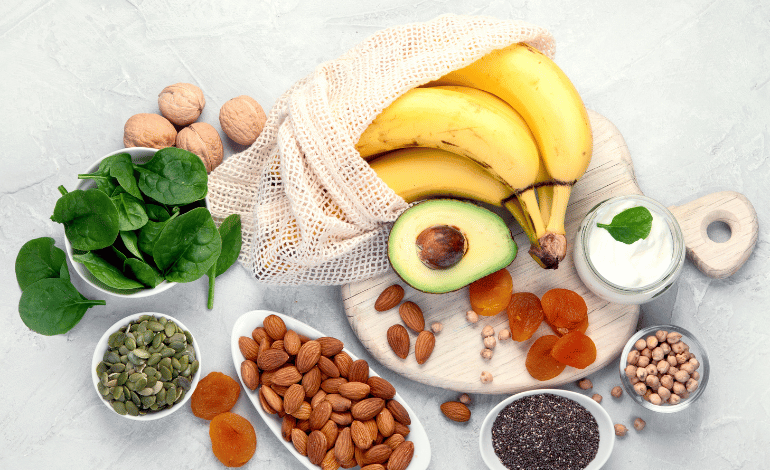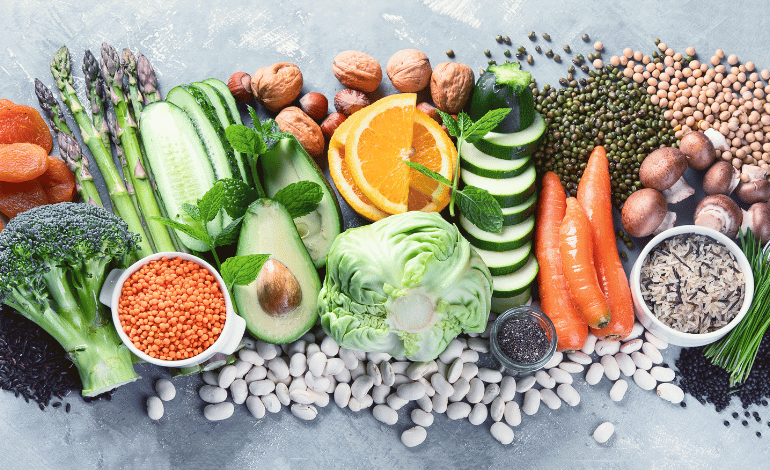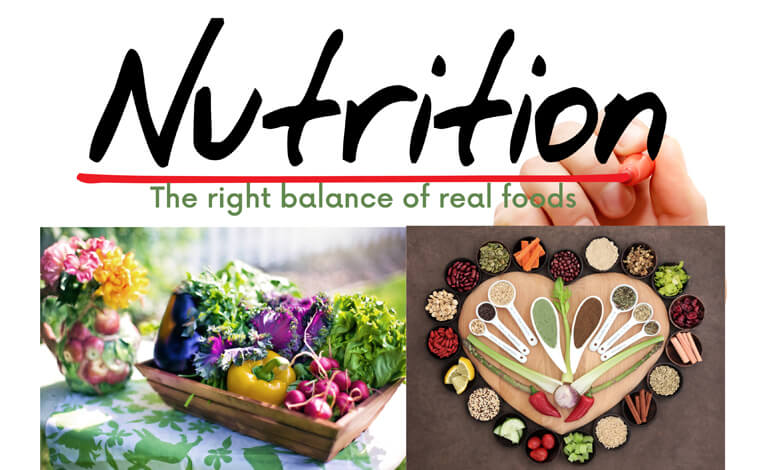Nutrition 101: The Basics of Eating for a Healthy Life

Nutrition 101: The Basics of Eating for a Healthy Life: Nutrition is the study of how food affects the body and its functions. A balanced and healthy diet is essential for good health, longevity, and disease prevention. Understanding the basics of nutrition is crucial for maintaining a healthy life.
The key components of a healthy diet include macronutrients, micronutrients, fiber, and water.
Macronutrients
Macronutrients are the essential nutrients that provide energy for the body. They include carbohydrates, proteins, and fats. Carbohydrates are the primary source of energy for the body and can be found in foods such as fruits, vegetables, grains, and dairy products.
Proteins are necessary for building and repairing tissues, and they can be found in foods such as meat, fish, poultry, legumes, and dairy products. Fats are necessary for many bodily functions, including hormone production and insulation, and can be found in foods such as nuts, seeds, oils, and fatty fish.
Micronutrients
Micronutrients, such as vitamins and minerals, are essential for maintaining a healthy body. They are needed in small amounts, but they play a critical role in various bodily functions, including immune system function, bone health, and energy production. These nutrients can be found in a variety of foods, including fruits, vegetables, whole grains, and lean proteins.
Fiber
Fiber is a type of carbohydrate that is not digested by the body but is essential for maintaining healthy digestion. Fiber can be found in foods such as fruits, vegetables, whole grains, and legumes. Consuming fiber-rich foods can help prevent constipation, improve digestion, and lower the risk of heart disease.
Water
Water is essential for maintaining proper bodily functions. It is necessary for digestion, absorption, and transportation of nutrients throughout the body. Drinking plenty of water can help individuals feel full, prevent dehydration, and improve overall health.
The importance of a balanced diet for overall health and disease prevention cannot be overstated. A balanced diet includes a variety of foods from all food groups and provides the body with the necessary nutrients for optimal health. Consuming it can help individuals maintain a healthy weight, prevent chronic diseases such as diabetes and heart disease, and improve overall well-being.

Some tips for achieving a balanced diet
Eating a variety of fruits and vegetables: These foods are high in vitamins, minerals, and fiber and can help individuals maintain a healthy weight.
Choosing lean protein sources: Lean proteins such as chicken, fish, and legumes provide essential nutrients without added fats and calories.
Limiting added sugars: Added sugars can contribute to weight gain and chronic diseases such as diabetes and heart disease. Individuals should limit their intake of added sugars by avoiding sugary drinks and processed foods.
Choosing whole grains: Whole grains such as brown rice and whole-wheat bread are high in fiber and essential nutrients.
Drinking plenty of water: Water is essential for maintaining proper bodily functions and can help individuals feel full and prevent overeating.
By following these tips and consuming a balanced diet, individuals can improve their overall health and well-being. A balanced diet can also help individuals prevent chronic diseases such as diabetes and heart disease and maintain a healthy weight.
Balance Diet Help to Prevent Chronic Diseases
One of the most significant benefits of a balanced diet is that it can help prevent chronic diseases such as heart disease, diabetes, and certain types of cancer. A diet high in fruits, vegetables, whole grains, lean proteins, and healthy fats has been shown to reduce the risk of heart disease by lowering blood pressure and cholesterol levels. Consuming a diet high in fiber-rich foods can help prevent type 2 diabetes by regulating blood sugar levels and improving insulin sensitivity.
A balanced diet can also help prevent certain types of cancer, such as colon and breast cancer. Consuming a diet high in fruits and vegetables has been shown to reduce the risk of colon cancer. While consuming a diet low in saturated and trans fats can help reduce the risk of breast cancer.
Additionally, it can improve overall health and well-being by providing the body with the necessary nutrients it needs to function properly. A diet that includes a variety of nutrient-dense foods can help boost energy levels, improve cognitive function, and promote healthy digestion.
In contrast, a diet high in processed foods, added sugars, and unhealthy fats can increase the risk of chronic diseases and lead to other health issues such as obesity, high blood pressure, and digestive problems.
Conclusion
In conclusion, nutrition is the study of how food affects the body and its functions. Understanding the basics of nutrition is crucial for maintaining a healthy life. A balanced and healthy diet includes macronutrients, micronutrients, fiber, and water.
Consuming a balanced diet can help individuals maintain a healthy weight, prevent chronic diseases, and improve overall well-being. By following the tips outlined above, individuals can make informed decisions about their diets and lead a healthier lifestyle.
FAQS
Q1. What is Nutrition 101?
Ans. Nutrition 101 is a basic understanding of how food affects the body and its functions. It covers the key components of a healthy diet, including macronutrients, micronutrients, fiber, and water.
Q2. Why is nutrition important for a healthy life?
Ans. Nutrition is essential for maintaining a healthy life because it provides the body with the necessary nutrients for optimal health. A balanced diet can help individuals maintain a healthy weight, prevent chronic diseases such as diabetes and heart disease, and improve overall well-being.
Q3. What are the key components of a healthy diet?
Ans. The key components of a healthy diet include macronutrients, micronutrients, fiber, and water. Macronutrients are the essential nutrients that provide energy for the body. Micronutrients, such as vitamins and minerals, are essential for maintaining a healthy body. Fiber is a type of carbohydrate that is not digested by the body but is essential for maintaining healthy digestion. Water is essential for maintaining proper bodily functions.
Q4. What are some tips for achieving a balanced diet?
Ans. Some tips for achieving a balanced diet include eating a variety of fruits and vegetables, choosing lean protein sources, limiting added sugars, choosing whole grains, and drinking plenty of water.
Q5. How can a balanced diet help prevent chronic diseases?
Ans. A balanced diet can help prevent chronic diseases such as diabetes and heart disease by providing the body with essential nutrients and helping individuals maintain a healthy weight. Consuming a balanced diet can also improve overall well-being and prevent other health issues related to poor nutrition.








